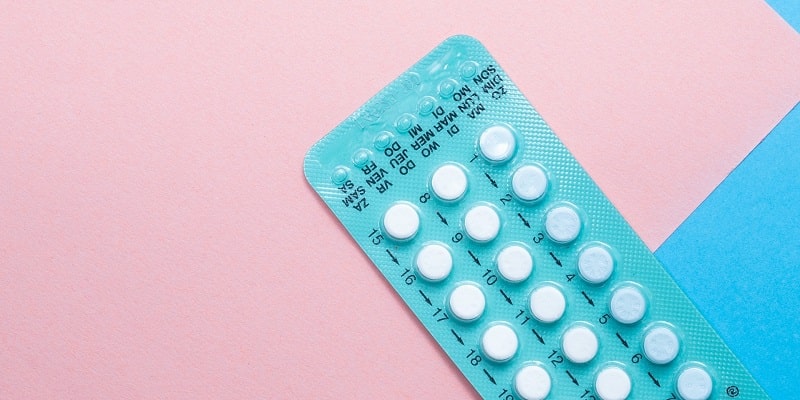The energy a person gets from food and drink depends on their metabolic rate. Fueling your body's digestion, transportation, and chewing processes also adds calories to your metabolism. Gender, age, and body mass index all play a role in this inevitable process. Engaging in physical exercise may help rev up your metabolism. Even the best chewing gum needs jaw movement, meaning this activity demands energy.
Relation Of Chewing Gum And Metabolism
Returning to the topic of chewing gum now. Research on the effects of best chewing gum after eating has shown that it speeds up a metabolic process known as "thermogenesis," which refers to releasing heat as an energy source after food consumption. According to the research, slow, deliberate chewing while eating was even more effective than gum in accelerating this process. There is no magic bullet for losing weight, but incorporating any of these routines won't hurt. Chewing gum does not cause weight reduction, according to the available data. In the long run, gum chewing may aid weight loss and maintenance in several ways.
Benefits Of Chewing Gum

Boosts Heart Rate
Walking while chewing gum raises your heart rate and burns calories. The Journal of Physical Therapy Science published this approach, which reveals a fascinating aspect of human physiologywalking while chewing gum increases speed and effort. A higher calorie burn may ensue. This activity may help individuals maintain or lose weight, which is crucial as they age. Chewing the best chewing gum is a useful workout that enables you to work harder. This efficient training tool boosts exercises without extra time or equipment.
Reduces Appetite, Calories, and Cravings
It may surprise you that gum may curb appetite. It suppresses appetite and helps individuals feel full sooner, which may reduce calorie intake. Binge eaters may benefit from this approach. Because gum makes the brain think it's fuller, it's an easy approach to cut calories. This method doesn't need special diets or supplements, so that everyone may attempt it. Adding this to your routine may help you eat healthier. This method may help you lose weight and eat better.
Researchers from Louisiana State University found that chewing gum had additional health benefits, including that it may make you eat fewer calories overall. A daily calorie deficit of around 40 calories was observed among the study's participants. This decrease, which may not appear significant at first, increases over time, demonstrating the gum's function in controlling hunger. Doublemint chewing gum helps keep calorie intake in check by diverting attention away from unhealthy snacking and keeping the brain and mouth busy.
A more disciplined diet may be achieved by chewing the best chewing gum before and after meals since it greatly reduces the desire for unhealthy snacks and sweets. A 2018 paper in "Frontiers in Psychology" emphasized an unexpected conclusion: people of a normal weight who chewed Doublemint chewing gum showed less impulsive eating tendencies. Not only does chewing take one's attention away from what one is eating, but it also makes one feel fuller for longer than they are. The plan is simple and won't take much time or energy, but it might significantly alter regular eating patterns.
Reducing Stress
A simple action like grabbing gum may relieve stress. A meta-analysis of 20 studies found that gum chewers at work and school are less stressed. According to research, Doublemint chewing gum before examinations reduced anxiety and improved performance. One hundred pupils were studied. Given these findings, this simple technique may help students and professionals manage stress and perform better in class.
Memory Enhancement
Research shows that gum chewing improves memory. MRI research shows that gum chewing affects memory-related brain regions. The researchers said further research is required to discover whether gum might assist brain damage patients in preventing or enhancing memory. This first research shows a fascinating link between normal practice and brain function, warranting more investigation.
Oral Health Improvement
Sugar-free gum may be excellent for teeth as well as can be chewing gum increase metabolism. Food is chewed after eating to clean teeth, boost saliva production (which fights plaque), and rebuild enamel. Xylitol-sweetened gum may also improve oral microflora. Chewing xylitol gum decreased bacteria in 70 Japanese men's saliva compared to a control group. This suggests that sugar-free gum, specifically xylitol gum, may keep teeth and gums healthy.
Prevents Ear Infections
Gum's xylitol and chewing action may prevent ear infections. Studies on children have indicated that xylitol in syrup, gum, or lozenges may prevent ear infections caused by bacteria. It works against Streptococcus pneumoniae and Haemophilus influenzae, the main causes of inner ear infections. More studies are required to confirm these findings. This may help healthy kids prevent ear infections easily and effectively.

Helps Quit Smoking
There are better gums, but a typical Hubba Bubba will keep your tongue busy until you kick the habit. When compared to a placebo, nicotine gum and other forms of nicotine replacement treatment are eighty percent more successful in helping smokers kick the habit. The effectiveness of using two types of nicotine replacement therapy is much higher.
Helps Your Gut Heal After Surgery
Digestion may have some difficulties after abdominal surgery. There's some evidence that gum may stimulate the digestive system and can be chewing gum increase metabolism as well. Gum chewing aided intestinal function recovery after a cesarean section, according to a modest meta-analysis of 10 trials encompassing 1,659 individuals. Another thing that appears to aid recovery after colon surgery is chewing gum.
Satisfies Thirst
You can't replace water with gum, which won't help your body stay hydrated. That being said, there is some proof that it may temporarily reduce your thirst levels. Chewing gum made people feel less dehydrated and less dry mouth, according to a modest meta-analysis of 12 trials. But, please, maintain your use of water.







